What happens after death?
by Gerrit Gielen
What does the afterlife look like? The main difference between this world and the hereafter is that after death the outer world is a direct reflection of our inner world. On earth, this is not so obvious. People who are filled with hatred and anger can be surrounded by beauty and abundance, while sensitive and evolved people may be wandering through desolate slums. In the afterlife, our environment reflects the extent to which we are in contact with our inner sun. The more love, truth, and beauty we hold within ourselves, the more radiant and bright our environment is.
The inner sun is who we are in our essence: it is the eternal, timeless part of ourselves. At the time of our death, we begin the journey back to that deepest part. To understand what this journey is like, you may envision the earth surrounded by two realms: the astral sphere and the spiritual sphere. These spheres are further divided into many sub-spheres. The spiritual sphere is the sphere of our origin, the domain of our soul. It is a sphere of timelessness, unity, light, beauty, and endless love. Everything that is of higher value in humans finds its origin there. This is the place where our soul dwells; it is our home. We have never truly left that spiritual sphere. We are still there. When we die we begin what we experience as a journey back to that place. But essentially, it is a process of becoming conscious of who we really are: an awakening from the dream of earthly life.
This awakening takes time. We cannot just let go of all illusions and dark feelings about ourselves, about being human, and about the universe that we have accumulated on earth. We have become identified with our earthly personality and this identification can persist stubbornly. Our illusions and identifications are reflected by the astral atmosphere in which we arrive after our death.
The Astral Sphere
After death, the human being is free; free to return to the spiritual sphere of one’s origin, free to create one’s own reality. But that freedom is also a pitfall, because many people have no inner freedom. They have locked themselves inside firm beliefs about how life works, what is good and what is bad, and what will happen after death. And there are others who are not enslaved to beliefs, but to feelings and desires, such as addictions, or feelings of anger or inferiority.
The majority of human thoughts and fantasies have their origin in fear. All those fear-based thoughts and fantasies create an inner state that, after death, translates into the outward form of the astral sphere. Accordingly, the astral sphere is largely based on fear and falsehood, whereas the spiritual sphere is based on love and truth. But because people do not realize that their thoughts are reflected outwardly in the astral sphere, they believe their thoughts to be true. This is the great pitfall of the astral sphere: people remain firmly convinced of false beliefs because they see those beliefs confirmed around them.
After their death, people can usually follow four paths associated with four sub-regions of the astral sphere.
1. The path of the soul
This path is followed by every human being who has experienced clear contact with their soul at certain times during their life. Those are the times when you feel really alive and inspired. You feel joy and a sense of purpose; you know who you are, and what you want to do with your life. You feel love for life on earth and your fellow humans, and you know that the universe is essentially good. If you have experienced this at times during your life, this feeling only becomes stronger after death. In the afterlife a process of growth begins during which you gradually become one with your soul: you experience this as a continuation of becoming more of who you really are. Your earthly fears and anxieties disappear and make space for happiness and insight. While your inner light grows, your environment also becomes more beautiful. You rise up through the spheres until you finally end up in the spiritual sphere, the sphere of the soul that cannot be described with words and cannot be grasped with the human mind.
The realm of the astral sphere where your journey begins can be called the Summerland. It resembles the beautiful areas of earth, but even much more paradisiacal. Fortunately, there are more and more people who follow this path. It is the path that is open for anyone who is involved in the development of consciousness, for all those who are willing to grow and learn. This path is for anyone who has not become stuck in rigid beliefs and negative feelings. Actually, it is open for every human being who is still able to have a good laugh at themselves.
2. The path of the personality
People who allow their lives to be steered by exterior events and impulses follow this path. They are certainly not a bad sort, but they do not listen to the voice of their soul and, instead, live by what society requires of them. They have no rigid opinions and their lives are usually lived in an unobtrusive way. After dying, they enter the astral sphere in an environment very similar to their earthly environment. It is referred to as “the realistic area” of the astral sphere, because it is so similar to earth. Some earthly cities are found there, almost entirely intact except for the many old buildings that have long since gone from earth, but where here they still exist. In general, this realm is quite beautiful: green landscapes filled with friendly towns and villages. People who end up here often do not realize they are deceased, because everything looks so much like earth, and because they did not hold the belief of a life after death.
However, there are guides present who gradually try to open these people to the spiritual. Often this happens successfully, because the people who come here are usually not dogmatic about their beliefs. Typically, people who live in rural areas are easier to reach by the guides than people who live in cities. The illusions of material reality are the strongest in cities.
One’s stay in this realm eventually comes to an end. Either a connection with the soul is made and the personality rises up to the spiritual sphere, or the soul makes the decision to incarnate again and the energy of that personality is taken to a next life. The departure from the astral sphere is sometimes called “the second death”. Higher entities explain to the personality that the time now has come to say goodbye to their current existence. He or she takes their leave with an extensive farewell ritual to their friends, knowing that they will meet each other once again. Sometimes this departure is experienced as a tragedy by the personality; this is due to the fact that he or she does not as yet possess a good connection with their soul. They will then surrender to the beam of light coming from their soul that forms the seed of a new incarnation.
3. The path of illusion
This path is often followed by people who do not have a good connection with their soul, but have very strong religious beliefs. Think of religious fundamentalists, for example. They are people with a strongly dualistic worldview; they are convinced that they are right and consider everyone who does not agree with them as bad or lost. The more a belief is based on fear, the stronger and more deterministic and dualistic the ensuing views. After they die, such persons end up in a heaven that is exactly the way they have imagined it. But because contact with the soul is missing there, these persons become even more miserable. On earth, they were also unhappy, but they still had the illusion that in heaven things would be different.
This realm is often called that of “the false heavens”. It is one of the lower regions of the astral sphere. Because the people here are very strongly convinced that they are right, they are difficult to reach by guides. Let me give an example of this. In some Christian circles it is believed that after death we do not immediately go to heaven, but wait in the grave until the last judgment. As a result, “cemeteries” can be found in the astral sphere where the deceased in their astral form remain in their graves. Of course, they feel unhappy. Guides who want to help them are seen as devils who want to talk them into going to hell.
In the astral sphere, there are many of these kinds of “heavens” resulting from all types of rigid beliefs. There, people feel extremely unhappy, but nevertheless refuse to let go of their beliefs. They experience every loving attempt to help them as temptations of the devil. They are often worried that they are bad, because they are unhappy and dare not admit this openly.
Often, it happens that leaders emerge within such astral “heavens”. These are deceased persons who have been, and still are, totally absorbed in their roles and, for example, believe they are the Christ or some other great master. In addition, they are also regarded as such by others in their heaven. A sect leader, who during his earthly life was regarded as an enlightened master, often continues their role after death. Because this realm lies closest to earth, in terms of vibration, psychics and mediums often pick up energies and information from this realm. It is a source of many false prophesies and misguided channeled information.
The information that is spread from these “heavens” is often very dualistic, moralistic, judgmental, and full of dire predictions that prove not to be true. The words of the “teachers” from this sphere are a reflection of their own soulless personality. Unfortunately, there are many people on Earth who get caught in the traps of these teachers, because the power of this sphere of illusion over mankind is still very great. But in the end, it will always be the case that truth leads to happiness and falsehood to illusion; truth has the more power and will eventually prevail. However, it may take a long time for people to become aware of this, especially if they are in the astral plane where you are free to create as much illusion as you want. Nevertheless, people will eventually come to wonder how their beliefs can be true, since they seem to cause so much unhappiness. They will then begin to doubt their cherished beliefs and dogmas, so in the end, their gentle inner voice will win out over their delusions. And when that happens, the way back to the light begins.”
4. The path of loneliness
Then, there are people who are not saddled with fixed and false ideas, but rather by negative feelings: hate, anger, resentment. They often have caused their fellow humans serious pain and suffering. Someone who has rejected their inner light during life finds themself in a part of the astral sphere that is dark and lonely. Because the light, which brings beauty and harmony, is missing here, people sometimes take on monstrous forms. Still, because everything here is so dark and miserable, redemption is also possible. If you only have monsters and darkness around you, it is clear that something is wrong. The negative emotions that occupied you eventually begin to lose their power, because they only cause more darkness.
Gradually, the insight comes that all sorts of things that seemed so important during the earthly life, such as power, money, property, and prestige, possess no light in them. The little light that was there now becomes more obvious. People remember a single beautiful moment from their earthly life: a kind word, a beautiful flower. They begin to re-evaluate those things, and doing this creates an opening: these persons become accessible to guides. The long road back can begin. Often, a choice for a new life on earth is made: a life that points the way to more inner light.
Punishment and karma
Our thinking about death, and what comes after, is still frequently determined by concepts such as punishment and karma. In almost all cultures, the idea exists of a higher authority that punishes. If we are bad, we end up in hell or we have to contend with heavy karma. Generally, those ideas are created by earthly rulers who want to maintain their power and who are against every form of freedom. Often their doctrine takes this form: “We have been placed above you by God and if you cannot accept that and do not meet our rules, God will punish you with eternal hell.” Or something more subtle: “We have been virtuous in a previous life and that is why we are now rich and powerful; you have been bad in a past life and that is why you are now poor and unhappy. But if you patiently accept your allotted role, things will be better in your next life.”
What always works best, at least from the point of view of such a ruler, is to cause fear in people about their natural tendencies: sexuality, for example. The aim is to convince people that they are inherently bad and deserve punishment. People who think they are bad and feel guilty are easy to keep under control by an organisation which claims to have a monopoly on the truth. If you can bring people into a state in which they think they are bad, and they believe you are their redeemer, you have power over them. Compared to these ideas, atheism is – from a spiritual point of view – a huge step forward.
In the universe, there is no such thing as an authority figure who imposes penalties. Not a punishing God, nor Lords of Karma who send us to a miserable life. But actions do have consequences. When in the winter it freezes, and I am outside without a jacket, then I get cold. That is not a punishment, but a result of my action.
Every time we hurt a fellow human being during our lives, we push the light of our inner sun a bit farther away. That inner sun is not only responsible for our inner light and our feelings of beauty, goodness, and truth, it also connects us with the inner sun of others and with the inner sun of the universe itself. Hurting another is to say “no” to the inner unity of life. It is saying “no” to our soul and also saying “no” to ourselves. The result is a deep loneliness and inner emptiness that is filled with negative feelings. In the eyes of a criminal – especially if they never come before a court – we never see joy or happiness. This is not a punishment, but a direct result of the choices they have made. They have simply said “no” to their inner source of joy and happiness.
After death, that inner darkness is reflected in the surrounding astral sphere. In the astral realm, the outer reflects the inner very directly. When there is no inner light, there also is no exterior light. To an outsider, it may seem as if persons dwelling there are being punished for their life on earth, but seen from the inside, there is hardly any change. These people felt empty and unhappy on earth and now they still feel that way. The only difference is that they are now directly confronted with their inner darkness, through an external environment that faithfully mirrors it.
The way back to the light
The way back to the light comes from the desire for the light. Even a human being enveloped in the deepest darkness is never completely separated from their soul. There are still fragments of memories of beauty and happiness. Gradually the understanding emerges that violence and power are not the way to discover the light, but rather lead away from it. Love cannot be attained forcefully. All those little memories now form the seeds of a growing desire for happiness, love, and beauty; their inner world softens and the person will become accessible to guides. These guides begin to explain to him or her that the way back to the light can be found through compassion, love, and gentleness.
However, the farther we have wandered away from our inner source, the longer will be the way back. What exactly is that way of return? It is a journey of remembering and rediscovering who we truly are, until all falsehood is let go and replaced by truth. At its core, falsehood means division: the belief that the universe is separated into an infinite number of parts – small egos – all of which are in conflict with one another. Falsehood is the idea of a struggle of “all against all”, in which the realisation of the inner unity behind all things has been lost completely. What is the solution to this division? It is to understand all these egos from the inner level and to start embracing all the parts that we have fought against the hardest. For example, a person who has discriminated against people of a different race will choose to live a life in which they undergo discrimination themselves. In this way, their understanding will evolve. The result is ultimately the realization that all those separated “egos” are connected. Then the love and the light of the soul starts to flow again.
The choice for having certain experiences on earth is taken by the soul. When the awareness of the earthly personality is still far removed from the soul, the choices of the soul will be experienced as a kind of power coming from the outside: God or karma. But karma is ultimately nothing more than the lessons that consciousness needs in order to grow, and these lessons are chosen by the soul itself. All kinds of so-called spiritual teachings that strive to eliminate your karma by burning it up, for example, are nonsense. The purpose of karma is to heal and restore the connection with your soul. As soon as you open to your inner light, to who you really are, your karma ends: the lesson has been learned.
I once had a client, a woman who clung to a relationship that made her very unhappy, because she thought this was her karma. But when I attuned to her soul, I felt that the universe – her soul – wanted to teach her that she had to stand up for herself. She thought that she had to undergo her misery patiently, when in reality it was her purpose to stand up for herself and get a divorce. Once she had done that, she had resolved her karma. The purpose of “karma” is thus never to make us suffer, but to make us grow. Suffering arises only when we resist that growth. If we resist making choices that support our growth and well-being, the misery we experience feels pointless and hopeless, and that is what suffering essentially is.
As our consciousness grows, we gradually realize that our resistance to what life offers us is the real problem. Instead of karma, we start to recognise our challenges as our own soul’s purpose. We realize that difficult experiences are not there to cause us suffering or to sacrifice ourselves, but rather to make us conscious of who we really are and to restore our sense of the inner connectedness of everything. In the next stage, in which consciousness coincides even more with the soul, everything that happens to you in your life is seen as your own free choice. Your journey back to the light is almost complete.
© Gerrit Gielen
Translation by Maria Baes, Frank Tehan and Pamela Kribbe

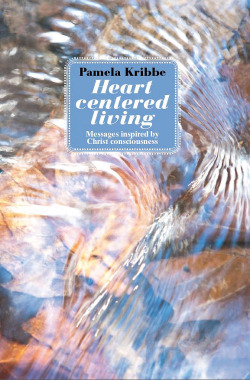
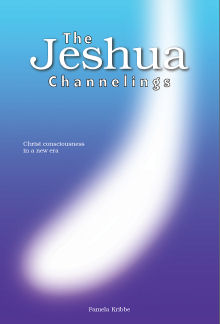
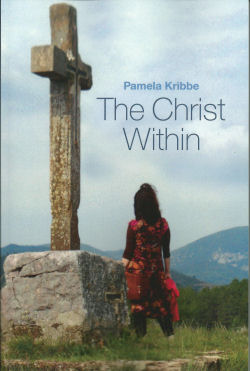
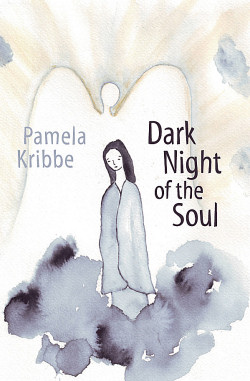

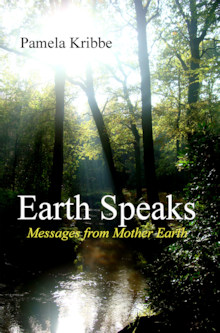

5 thoughts on “What happens after death?”
The best part of the next existence is most of us will end up surrounded by others like ourselves!
Still working on finding this here, following my freedom will greatly assist before I die/go.
Thank you for this!
Thank you for this
Dear Pamela and Gerrit,
I extend my grateful thanks for your sharing of this sublime wisdom. May you always be blessed, my your lessons be brief, kind a highly transformative and may we all meet again once we have returned to the other place. The place of soul, of heart and love.
Be well always, love, B ❤️
Remember, we are not here to learn, but to remember who we are being Yahweh. We chose to live this life in limitations for the experience. This contrast to our highest self is for the drama of all events and circumstances we chose and wanted to experience.
Thank you very much.